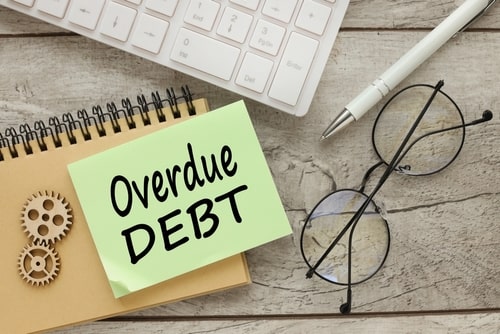How the Fair Debt Practices Act Protects You During Bankruptcy
 Dealing with overwhelming debt can be an incredibly stressful experience, especially when you are considering bankruptcy as a solution. However, knowing that you are entitled to rights and protections under the law, specifically the Fair Debt Collection Practices Act (FDCPA) is important. A North Carolina lawyer can help you understand how the FDCPA works to protect you during bankruptcy.
Dealing with overwhelming debt can be an incredibly stressful experience, especially when you are considering bankruptcy as a solution. However, knowing that you are entitled to rights and protections under the law, specifically the Fair Debt Collection Practices Act (FDCPA) is important. A North Carolina lawyer can help you understand how the FDCPA works to protect you during bankruptcy.
What is the Fair Debt Collection Practices Act?
The FDCPA is a federal law that regulates the actions of debt collectors and protects consumers from unfair, deceptive, or abusive practices. This law applies to personal, family, and household debts, including medical bills, credit card debt, and auto loans. While the FDCPA does not erase your debt, it provides a layer of protection during the debt collection process, even when you are going through bankruptcy.
How the FDCPA Protects You:
The FDCA can protect you in various ways. Some ways include the following:
Limits on Communication
Unless you agree, one rule of the FDCA bans debt collectors from contacting you during inconvenient times or places, like before 8:00 in the morning or later than 9:00 at night. They also cannot contact you at work if you tell them your employer prohibits such communication. If you have an attorney representing you in your bankruptcy case, the debt collector must communicate with your attorney instead of contacting you directly.
Prohibition of Harassment and Abuse
A debt collector may not harass, oppress, or abuse you while attempting to collect the debt. This means they cannot use threats of violence, profane language, or repeatedly call you with the intent to harass or annoy you. These protections remain in place during bankruptcy, giving you peace of mind as you work towards a fresh financial start.
Required Debt Validation
When a debt collector contacts you, they must provide you with a written debt validation notice. This has to be sent to you no more than five days after their initial contact. This notice must include the debt amount, the creditor's name, and a statement informing you of your right to dispute your debt within 30 days. If you dispute your debt in writing, the collector must cease collection efforts until they provide you with proof of the debt’s validity.
Protection from Misrepresentation
Debt collectors are prohibited from making false or misleading statements when attempting to collect a debt. They cannot misrepresent the amount you owe, falsely claim to be attorneys or government representatives, or threaten legal action they do not intend to pursue. This protection is crucial during bankruptcy, as it helps ensure you are not misled or coerced into making payments you may not actually owe.
What to Do if a Debt Collector Violates the FDCPA
Taking action is an option if you believe a debt collector violated your FDCPA rights. Start by informing your bankruptcy attorney about the situation. They can help you document the violations and advise you on the best course of action. Another option is to submit a complaint to either the CFPB or the North Carolina Attorney General's office. In some cases, you might be entitled to sue the debt collector for damages and attorney’s fees.
Contact a Charlotte, NC Bankruptcy Attorney
The bankruptcy process can be challenging, but remember that you have rights and protections under the Fair Debt Collection Practices Act. A Mecklenburg County, NC bankruptcy lawyer can help you if you decide to move forward, so the process can be a bit easier. Call Blossom Law PLLC at 704-256-7766 for a free consultation.


 704-BLOSSOM
704-BLOSSOM

